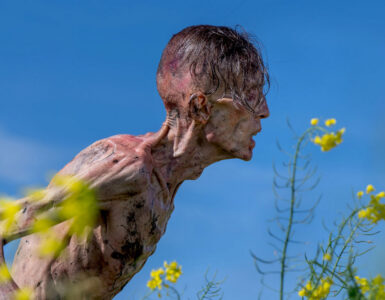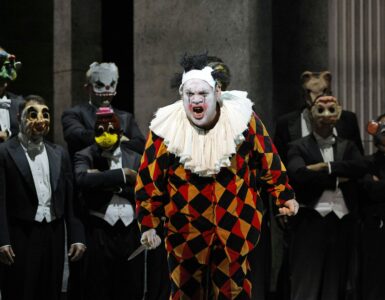Iñárritu’s dark western is a stunningly photographed but ultimately empty exercise in style.
In The Revenant, Leonardo DiCaprio goes for broke playing Hugh Glass, a real-life 19th-century frontiersman who survived a vicious grizzly attack and a painful, prolonged trek across a frozen frontier in order to exact revenge on the men who’d left him for dead. The actor’s dedication to this arduous role is eminently clear — but will it bring him the gold statuette that’s so clearly overdue?
Director Alejandro Gonzáles Iñárritu immediately plunges his audience into a beautiful but unforgiving landscape with a brutal attack by warriors of the Arikara tribe on a band of fur trappers, arrows raining down and puncturing flesh everywhere.
Before we can catch our breath, the scene is followed almost immediately by the jaw-droppingly realistic bear attack that everyone is talking about (albeit for the wrong reason). Thereafter, and for more than two hours, DiCaprio drags his torn carcass across the frozen tundra, surviving other extreme challenges and demonstrating handy survivalist techniques along the way.
Tom Hardy plays the villainous Fitzgerald with an accent so thick that his many proclamations are rendered unintelligible, save for the oddly anachronistic pronunciation of “Aight?”. Domhnall Gleeson is the more virtuous Captain Henry, who pays Fitzgerald and a young trapper, Jim Bridger (Will Poulter), to stay with the gravely wounded Glass until he dies.
It’s an odd thing for Henry to place his trust in Fitzgerald, who is such a textbook baddie — and quick to prove it, right in front of Glass’ vengeful eyes. Forrest Goodluck plays Hawk, Glass’s half-breed son, whose mother was murdered in a prior massacre, but as delineated by Iñárritu and co-scripter Mark L. Smith, the father-son relationship isn’t very convincing, and the boy’s character is soon sacrificed as further fuel for Glass’ burning vengeance.
Indeed, the writers seem rushed to offer quick sketches of character “types” in order to carry on with the business at hand: throwing physical challenges at the game DiCaprio, who revealed in interviews that it was one of the most difficult productions he’d ever been involved in. The payoff is a remarkably realistic film that nevertheless maintains an emotional distance where one really longs for catharsis.
Working again with Birdman’s director of photography, Emmanuel Lubezki, Iñárritu offers up scene after scene of breathtaking outdoor imagery, some of it looking positively 3D, but a constant onslaught of immaculately composed shots can also become tiring, as if he’s repeatedly shouting, “Look at this masterpiece! And what about this shot?” Furthermore, gimmicks like bringing actors so close to the camera that their breath actually seems to fog the lens breaks the fourth wall in a way that actually works against the absolute realism Iñárritu wanted to achieve.
The Revenant is also filled with symbols and mysticism intended to give it a Terence Malick level of depth, but these sequences feel like inauthentic crutches thrown in whenever something extra was needed to juice up the rather slow-going narrative. They also become rather silly, as when Glass has a vision of his late wife floating above his supine body as if she’s planking him from beyond the grave.
As far as Academy Awards go, expect a nomination and possibly a win for Lubezki. Whether Leo’s bloody, tortured trek is enough to turn the heads of voters is another story.
The Revenant opens in cinemas nationwide on January 8, 2016.





